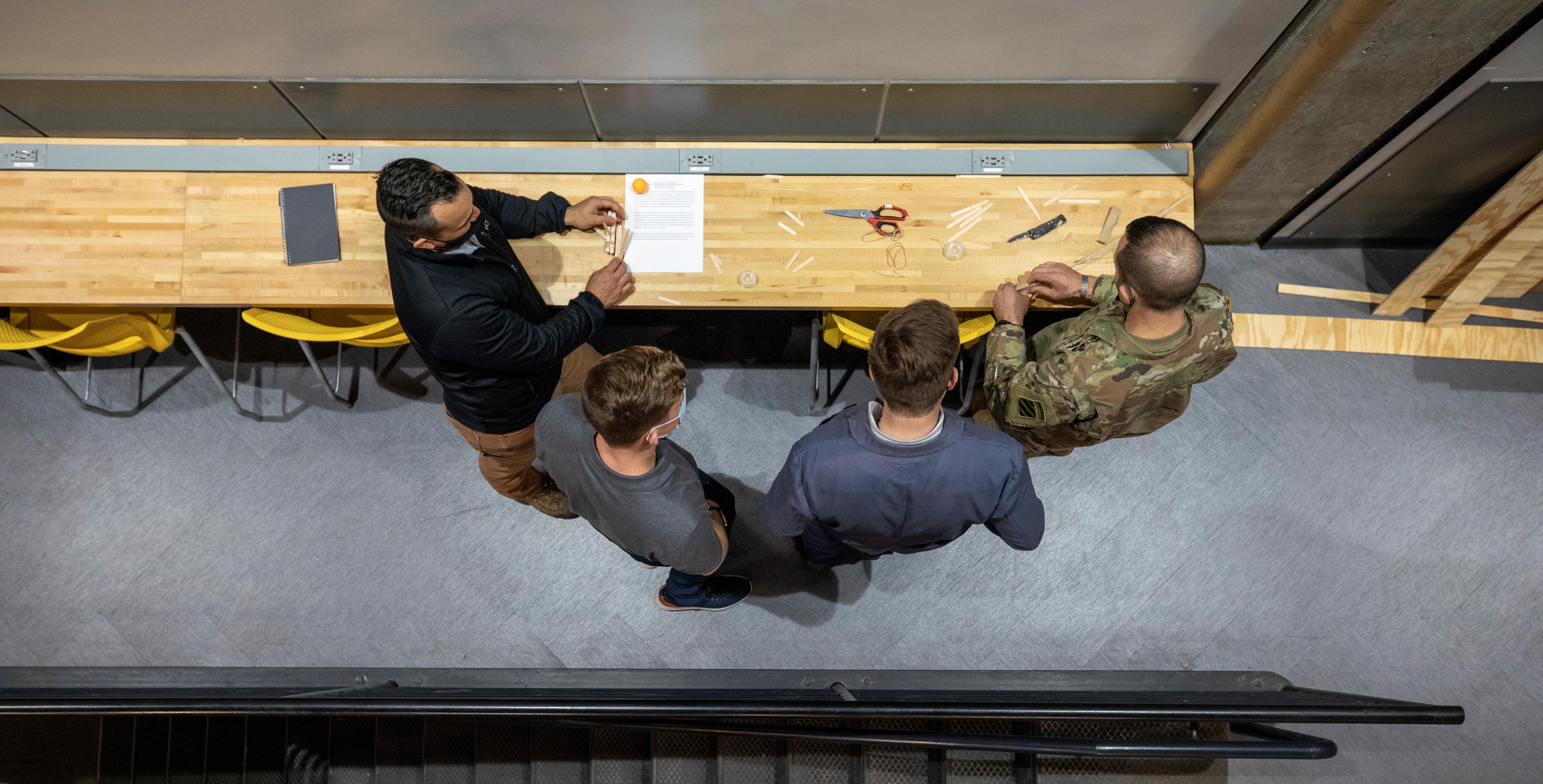
Soldiers, students, and researchers joined together at the first-ever Marne Innovation Workshop to solve today’s problems. The Georgia Tech Research Institute (GTRI) helped host the 3rd Infantry Division (3rd ID) and the Georgia Institute of Technology’s (Georgia Tech) Army ROTC during the four-day event, which was held Jan. 6 to Jan. 9 and focused on innovation through collaboration.
“The Marne Innovation Workshop is the first opportunity for 3rd ID to partner with the Georgia Institute of Technology, and its intent is to solve today’s problems with today’s technology,” said Capt. Ben McFarlin, deputy innovations officer for 3rd ID.
Throughout 36 hours, workshop participants and their GTRI advisors worked to develop real-world solutions that 3rd ID will implement into its organization. The event also utilized space and expertise provided by Georgia Tech’s George W. Woodruff School of Mechanical Engineering.
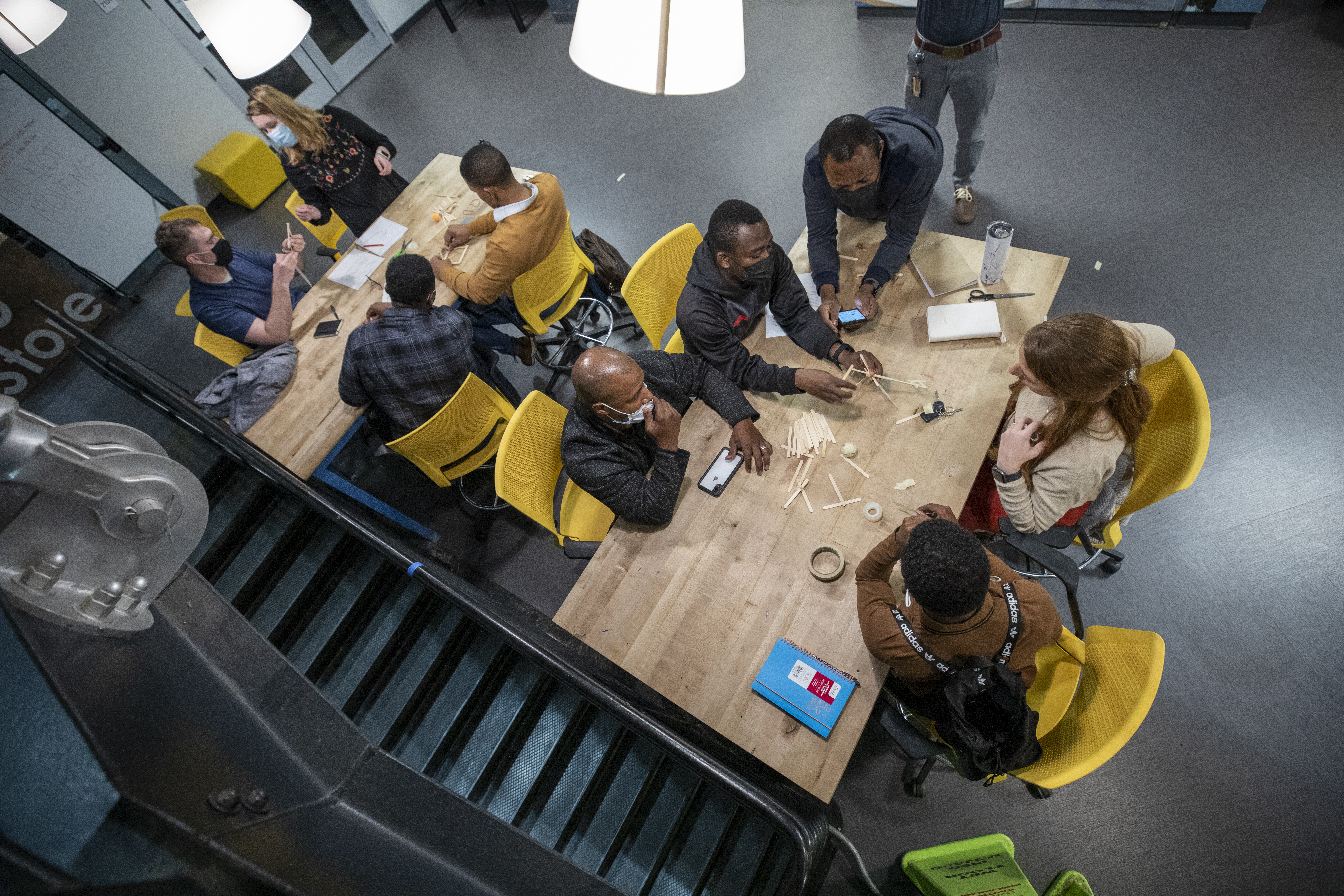
Innovation and Collaboration
The 3rd ID, a combined arms division of the United States Army based at Fort Stewart, Ga., is trying to leverage current knowledge and technology to aid in a modernization path that includes new equipment, weapons, and vehicles across the division. For the soldiers attending the Marne Innovation Workshop, there was a purposeful focus on enhancing and broadening their intellectual and problem-solving abilities through new industry and academic partnerships.
The workshop aimed to produce actionable solutions to challenges the Army is facing. Georgia Tech students and USMA cadets selected a final list of challenges based on a list created by 3rd ID soldiers.
As the weekend began, participants were welcomed by Georgia Tech leadership members, including Lt Col Clifford Woodburn, ROTC professor of the practice; Devesh Ranjan, Eugene C. Gwaltney, Jr. School chair and professor; and Chaouki Abdallah, Georgia Tech’s executive vice president for research (EVPR).
Collaboration streamed through the air as the teams sought to develop creative solutions to the three problem statements:
- A data analytics problem to help 3rd ID leaders collect and analyze the right data to help select combat vehicle crews, a notoriously difficult and labor-intensive process.
- A mechanical solution to mount equipment on the outside of combat vehicles. Current improvised solutions (tying them to the outside) result in the loss of dozens of pieces of equipment and countless person-hours when equipment is knocked off of the exterior of combat vehicles.
- A solution to keep track of artillery rounds stored and fired out of a mobile artillery gun and report current ammunition counts to multiple command echelons.
Utilizing New Resources and Advisors
Before the event even started, GTRI Research Engineer Andy Chang played a vital role as GTRI’s volunteer coordinator. He helped recruit and organize the GTRI volunteers to support the teams.
The GTRI advisors paired with teams comprised of cadets and soldiers, and they provided valuable insight and expertise.
“This a great outreach opportunity for GTRI to make contact with motivated, military-focused students and help solve real-world problems for an active-duty Army unit based right here in Georgia,” explained Chang.
In addition to the knowledge from GTRI employees, the teams had access to Georgia Tech makerspaces, such as GTRI’s SEEDlab and the George W. Woodruff School of Mechanical Engineering’s Flowers Invention Studio, to brainstorm and problem solve. A makerspace is a collaborative community workspace where people can build and experiment while sharing tools, ideas, and expertise with other members.
“The Flowers Invention Studio is 4500 sq. ft. makerspace open to all students, staff, and faculty at Georgia Tech with a mission to empower creative self-efficacy,” explained Director of Design & Innovation Amit S. Jariwala. “It is run by a volunteer student organization, Invention Studio at Georgia Tech, which has around 100 student volunteers who all share a common passion to learn, share and teach design and manufacturing.
While in these spaces, participants had access to a plethora of resources, including 3-D printers, CNC machines, hand tools, and more.
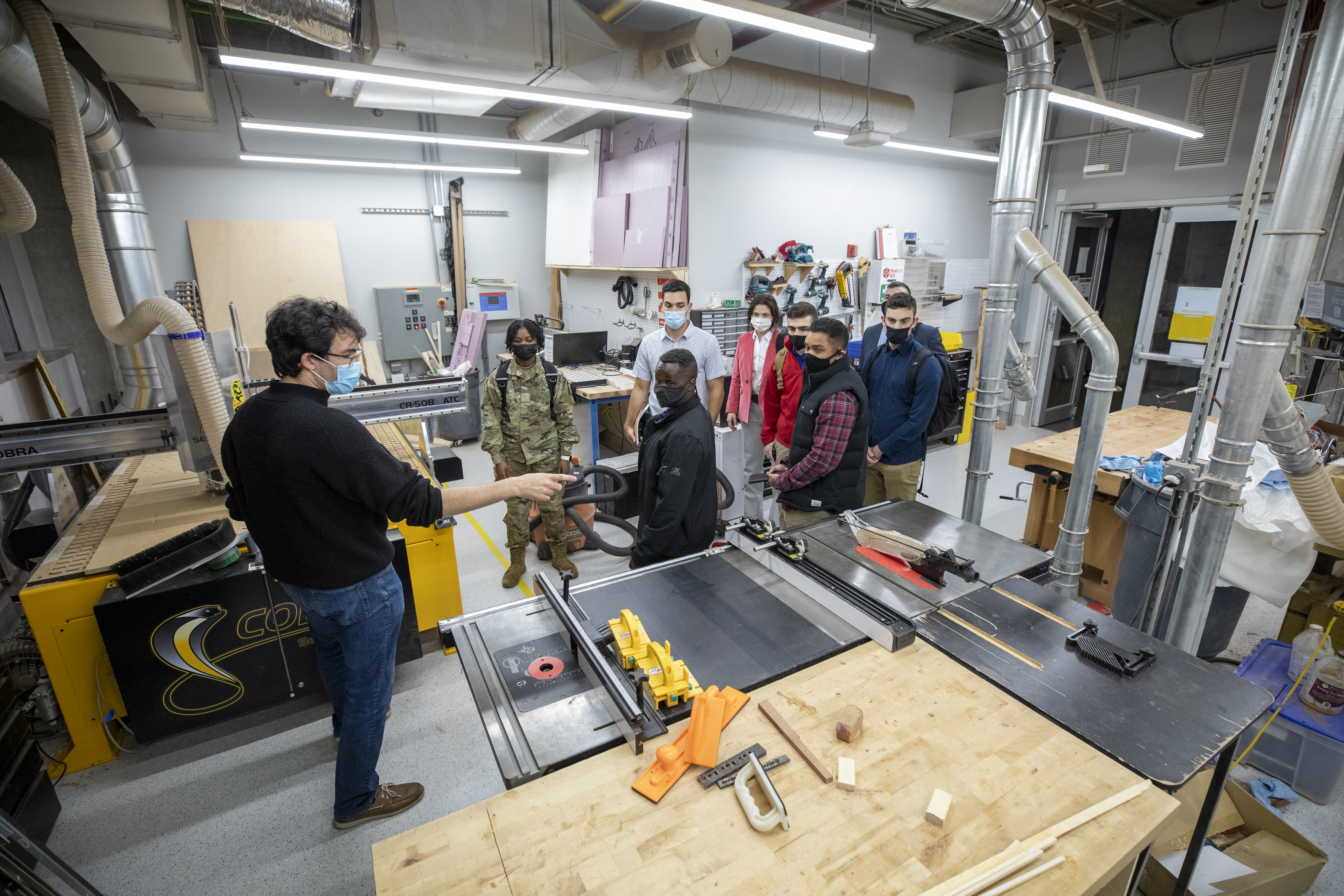
Jariwala led the design-thinking-based ice breaker exercise on the evening of Jan. 6, embodying the idea that “innovation requires iterations!” The exercise was based on the team activity in the Woodruff School’s sophomore-level design course, ME2110, and was developed for the course by Chris Saldana, Ph.D.
Georgia Tech student leaders, including Ritesh Bhatt (ME), William Cooper (CS), Manu Gummaraju (ME), and Matthew Dick (AE), also volunteered their time to provide tours of the makerspace and facilitate the design thinking exercise.
By the end of the weekend, each team produced a list of courses of action considered, a functional prototype (digital or physical), and steps forward for each of their problem sets.
“All the teams did wonderful,” said GTRI Research Scientist Akilah McIntyre as she reflected on the event. “I’m impressed at the creativity and range of solutions that the teams synthesized in a short amount of time. They really demonstrate the magic of prototyping using all available resources.”
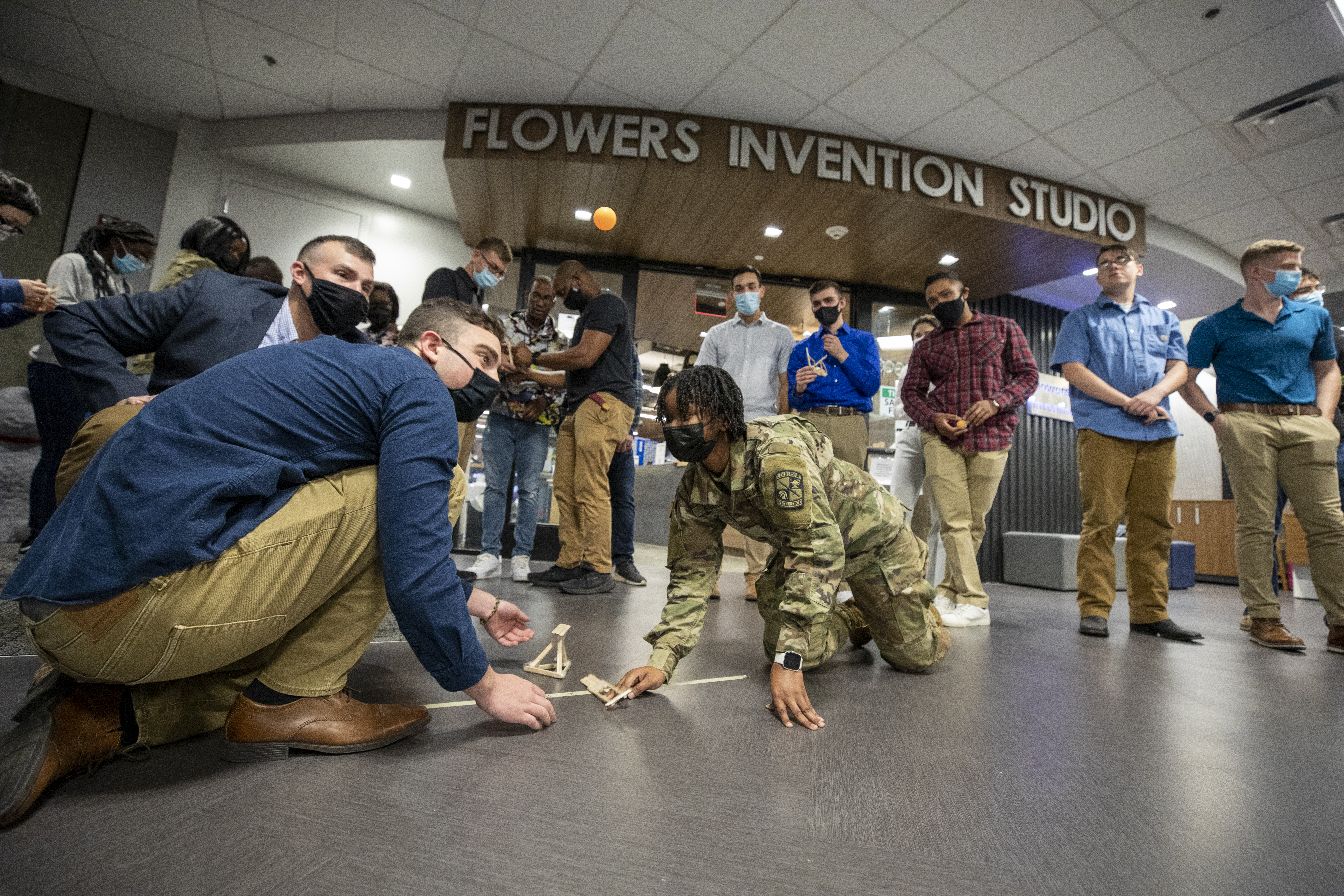
Moving Forward
Participants in the Marne Innovation Workshop not only created thoughtful solutions, but they also built a network they can count on in the future. The event brought together cadets, students, and soldiers from many different geographic areas. Despite the distance, they will remain in contact to continue seeking creative remedies for the problems 3rd ID soldiers face.
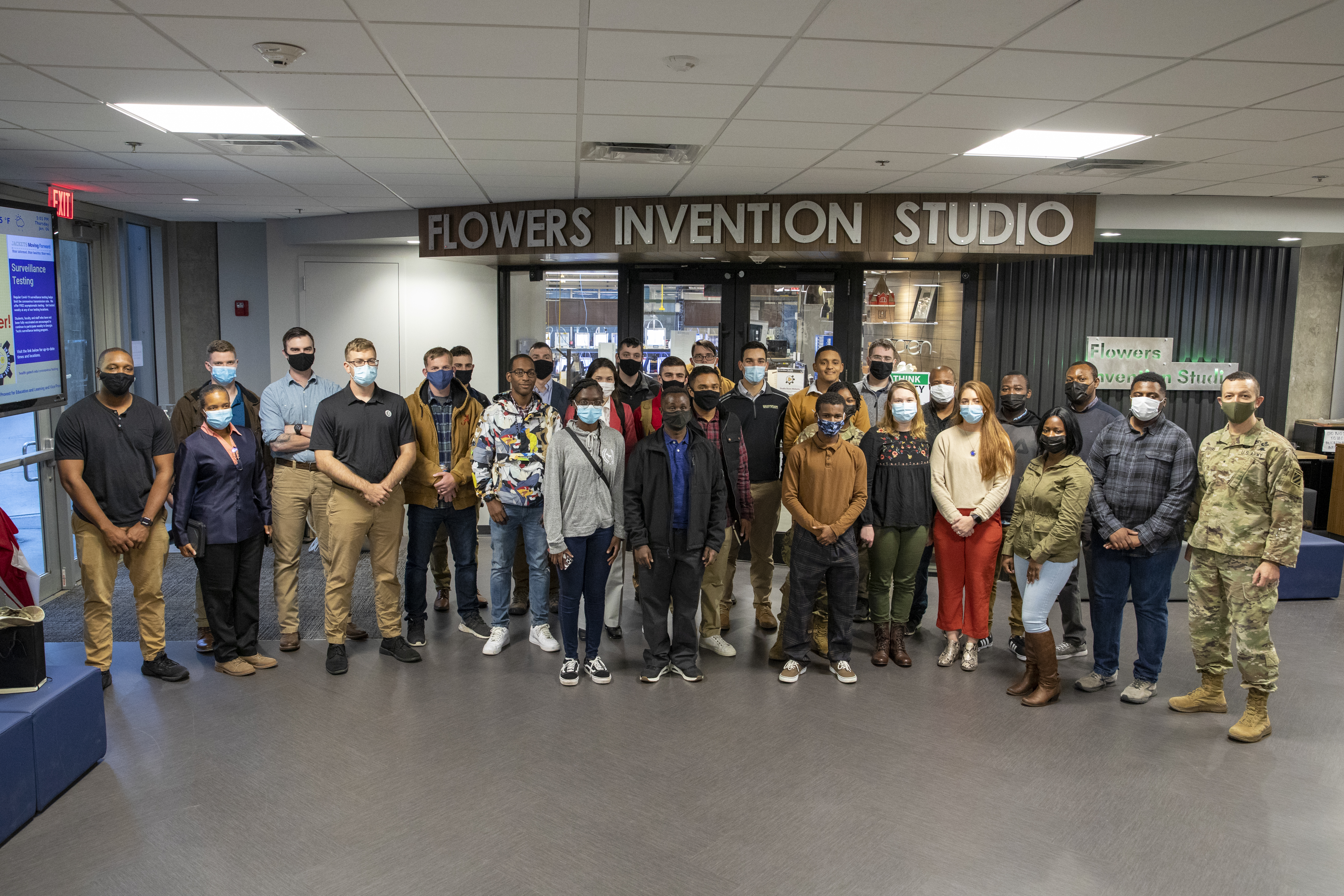
“This is a great first step in the manifestation of the Educational Partnership Agreement between Georgia Tech/GTRI and the 3rd Infantry Division,” said Chang. “We look forward to expanding and building on the partnership to continue to help solve problems for this nation’s front-line warfighters.”
The event demonstrated how well GTRI and Georgia Tech collaborate with the Army in the mission of education and problem solving.
“[We had] great support from our senior leadership, faculty, staff and students,” said George White, the (Interim) vice president of Georgia Tech’s Office of Industry Collaboration, who supported and helped plan the workshop. “[There are] many opportunities for sustained engagement.”
We look forward to future opportunities to partner with the Army in modernization and innovation efforts.
Article updated as of Feb. 7, 2022.
Writer: Katrina Heitz
Photos: Sean McNeil
GTRI Communications
Georgia Tech Research Institute
Atlanta, Georgia USA
The Georgia Tech Research Institute (GTRI) is the nonprofit, applied research division of the Georgia Institute of Technology (Georgia Tech). Founded in 1934 as the Engineering Experiment Station, GTRI has grown to more than 2,800 employees, supporting eight laboratories in over 20 locations around the country and performing more than $700 million of problem-solving research annually for government and industry. GTRI's renowned researchers combine science, engineering, economics, policy, and technical expertise to solve complex problems for the U.S. federal government, state, and industry.
Learn more at www.gtri.gatech.edu and follow us on LinkedIn, Twitter, Facebook, and Instagram.



